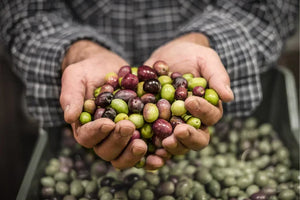The Health Benefits of Olive Oil
What's so great about Extra Virgin Olive Oil? Extra Virgin Olive Oil has more monounsaturated fatty acids as well as...
Women in the Olive Oil Industry
And the oils? She gave me a blind tasting and really they were beyond what I had expected. Each one offering layer after layer of beautifully balanced flavour. I was blown away. The Centenarium is everything you'd expect from an oil that has received 99 points (out of 100) from the prestigious Flos Olei awards (it's kind of the Olympics of olive oil in case you're not familiar). It's as bold and jazzy as a Picual can be with plenty of fresh green notes (it's early harvest of course) and even a little of the lavender Lola grows alongside the olives in the groves. Superb.
What happens when you eat extra virgin olive oil every day?
The quest for excellence at Finca la Torre
In 2020 Sarah & Olive starting working with Finca la Torre a brand synonomous with excellence in olive oil. The...
The Truth About Extra Virgin Olive Oil: What Cold-Pressed Really Means (And Doesn’t)
If you've ever wandered the olive oil aisle wondering whether “cold-pressed” or “first pressing” really means you’re getting the best olive oil in the world, you’re not alone. These terms are often used on labels to imply superior quality but actually they aren't really relevant any more.
To be legally classified as extra virgin, olive oil must be extracted at temperatures no higher than 27°C (80.6°F). Why? Because heat breaks down the delicate polyphenols and antioxidants that give the healthiest extra virgin olive oil its flavor and health benefits. Once you go over that temperature, you’re no longer producing high quality extra virgin olive oil, but something of a lower grade—like plain virgin or even regular olive oil. So, cold pressed is a baseline when we're talking about extra virgin olive oil not something that's extra special.










